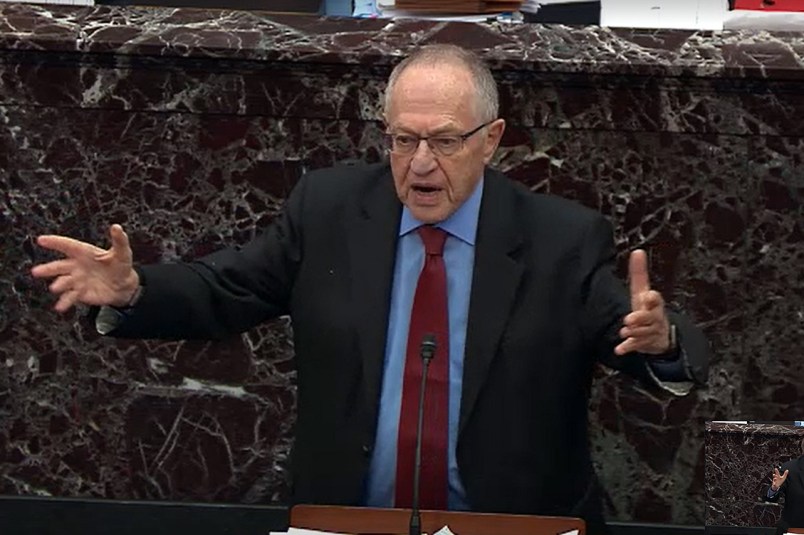Senators asked a whopping 93 questions of House impeachment managers and President Trump’s legal defense team Wednesday, the first day of the question-and-answer phase of the impeachment trial.
After spending the first week of the trial in silence while House impeachment managers and President Trump’s legal team made their cases, senators now have the opportunity to ask any burning questions, read aloud by Chief Justice John Roberts.
Once the Q&A period wraps up, the Senate will move on to debate whether to call witnesses.
Here are the most notable answers from Wednesday’s session:
Philbin’s answer to Sens. Susan Collins (R-ME) and Lisa Murkowski’s (R-AK) joint question
When the key GOP senators teamed up to ask the President’s lawyers if Trump ever mentioned the Bidens in connection to the Ukraine pressure campaign before former Vice President Joe Biden launched his presidential campaign, Trump lawyer Pat Philbin initially hedged about the limited scope of the record based on the House’s inquiry. He then said that “I can’t point to something in the record that shows President Trump at an earlier time mentioning specifically something related to Joe or Hunter Biden.”
Philbin would later deny that he dodged the question, saying that “we’ve been advised by House managers that they were going to object if we attempted to introduce anything that was not either in the public domain.”
Collins’ and Murkowski’s joint question is notable because they are being closely watched for any signs that they will break with the bulk of their Republican colleagues to call for witnesses in the trial.
COLLINS/MURKOWSKI: Did Trump ever express worry about corruption in Ukraine before Biden started running?
TRUMP LAWYER PHILBIN: I can't point to something in the record that shows him mentioning something related to the Bidens. But he did talk about corruption in Ukraine. pic.twitter.com/QXFK0O4jDB
— Aaron Rupar (@atrupar) January 29, 2020
Dershowitz’s stunning assertion in response to Sen. Ted Cruz’s (R-TX) question
“As a matter of law, does it matter if there was a quid pro quo? Is it true that quid pro quos are often used in foreign policy?” Sen. Ted Cruz (R-TX) asked.
Trump lawyer Alan Dershowitz responded with a pretty stunning assertion, saying that “every public official” he knows “believes that his election is in the public interest, and mostly you’re right.” Dershowitz said that if a lawmaker does something that will help him get elected and in the public interest, then it doesn’t count as an impeachable offense.
“Your election is in the public interest,” Dershowitz said. “And if a President does something which he believes will help him get elected in the public interest, that cannot be the kind of quid pro quo that results in impeachment.”
Romney being name-dropped in hypothetical situations
House impeachment manager Adam Schiff asked senators to consider what would happen in a hypothetical scenario where former President Barack Obama tried to pressure Russia into investigating Romney before the 2012 election.
“Do any of us have any question that Barack Obama would be impeached for that kind of misconduct?” Schiff asked.
Schiff would later take a hypothetical question submitted by Sens. Lindsey Graham and Cruz — who posed a hypothetical where Romney’s son was being paid by a corrupt Russian company and Romney was acting to benefit the company, asking if Obama would have the authority to investigate it — and shut it down.
“Would it have been impeachable if Barack Obama had tried to get (former Russian President) Medvedev to do an investigation of Mitt Romney whether it was justified or unjustified?” he asked. “The reality is for a president to withhold military aid from an ally or in the hypothetical to withhold it to benefit an adversary, to target their political opponent is wrong and corrupt. Period. End of story.”
Adam Schiff had an interesting hypothetical during the impeachment trial today: What would have happened if somebody had ordered a probe into Mitt Romney?
“Do any of us have any question that Barack Obama would be impeached for that kind of misconduct?" https://t.co/MMUldPLYSS pic.twitter.com/l9gyA7isGP
— POLITICO (@politico) January 29, 2020
Philbin’s defense of Mulvaney’s quid pro quo admission
Philbin argued that acting White House chief of staff Mick Mulvaney was merely “garbled and/or misunderstood” when he made his quid pro quo admission during a damaging press conference on October 17 that Ukraine military aid funds were frozen because Trump wanted Ukraine to investigate the debunked Crowdstrike conspiracy theory (“That’s it, and that’s why we held up the money,” Mulvaney told reporters).
Sekulow’s dream list of witnesses
Predictably, Sekulow didn’t include his client, President Trump, but he entertained spectators with a dream list of witnesses he would call on to testify if he’s forced to do so.
Sekulow first listed Schiff, referencing an earlier statement from Senate Minority Leader Chuck Schumer that Trump, if he wanted, could have any witness or testimony introduced to the trial.
“I want Hunter Biden. I want Joe Biden,” Sekulow added. “I want the whistleblower. I want — I also understand that there may be additional people within the House Intelligence Committee who may have had conversations with that whistleblower.”



